You want to raise your kids to be creative and solve problems. How do you do that? It’s easier than you think!
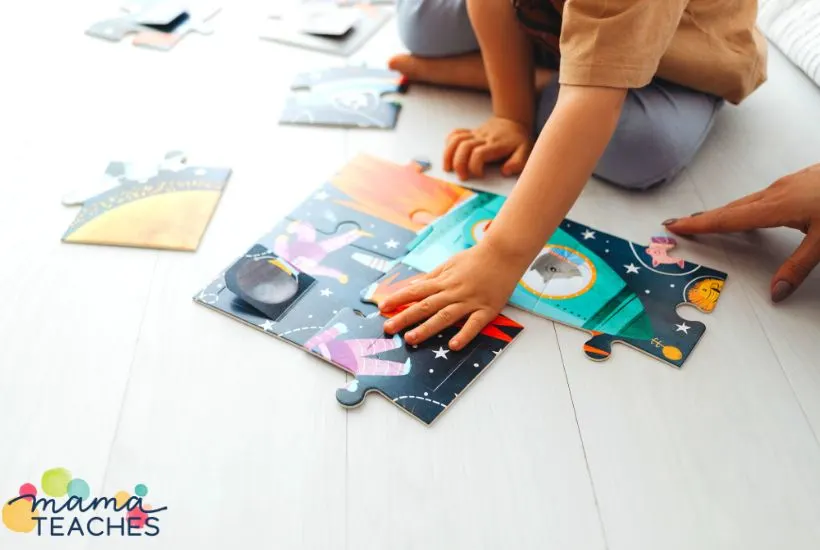
The Typical Homeschool Learning Environment
As homeschool teachers, we are able to provide our kids with a one-on-one learning environment. That’s almost always a great thing.
If your child struggles with a math concept, you are right there to help him through it.
If he needs to focus on a line of text, your finger can point to where the needs to track.
You are also on-site to help with creative projects, too. If your daughter needs help building Shakespeare’s Globe Theater out of popsicle sticks and cardboard, you are right there with the hot glue gun.
90% of the time, it’s wonderful that you are by your student’s side.
But you do need to step away in order to foster creativity and problem-solving skills.
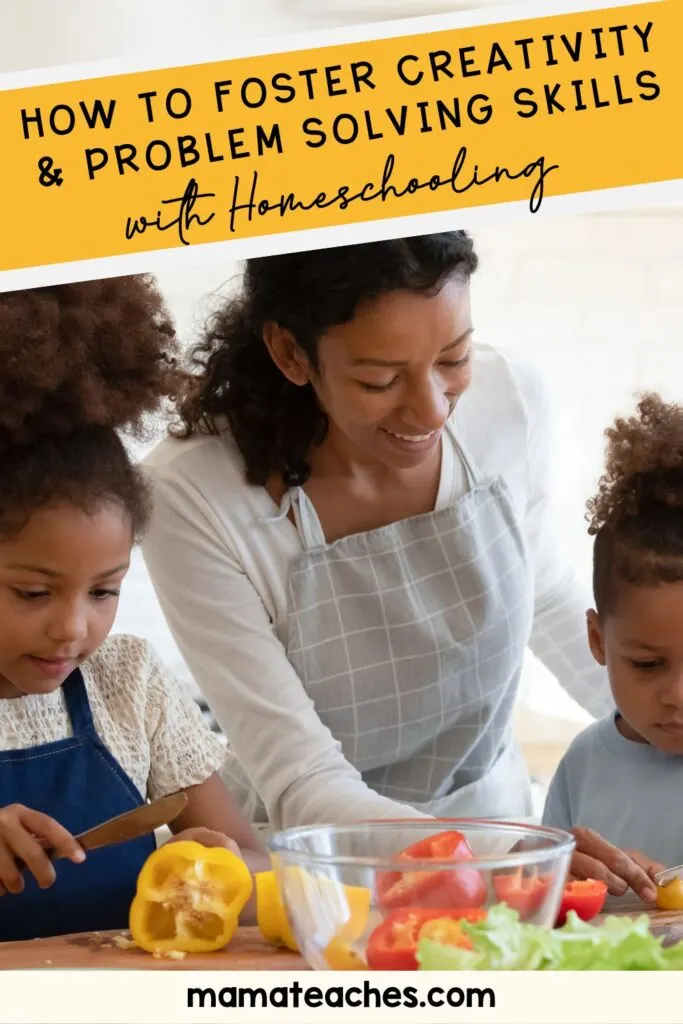
This article contains affiliate links to things that you might like.
How Do You Develop Problem-Solving Skills?
Your children will only learn to solve problems if there are…well….problems.
That means you need to step back in certain circumstances and let your student figure things out on his own.
Project-based learning is the best way to develop problem-solving skills.
You assign a project with guidelines but leave some of the decisions up to the student.
Teacher Versus Mentor
This doesn’t mean that you just disappear. You simply take on the role of a mentor instead of a teacher. What is the difference?
A teacher knows all the information and relays it to the student. A mentor may know the information but understands that the student must take the lead.
A teacher teaches to mastery. A mentor prizes ownership and independence over perfection.
A teacher instructs. A mentor asks questions to help the student clarify his thinking and solve problems.
A teacher is a fount of information. A mentor points the student to where she can find the information for herself.
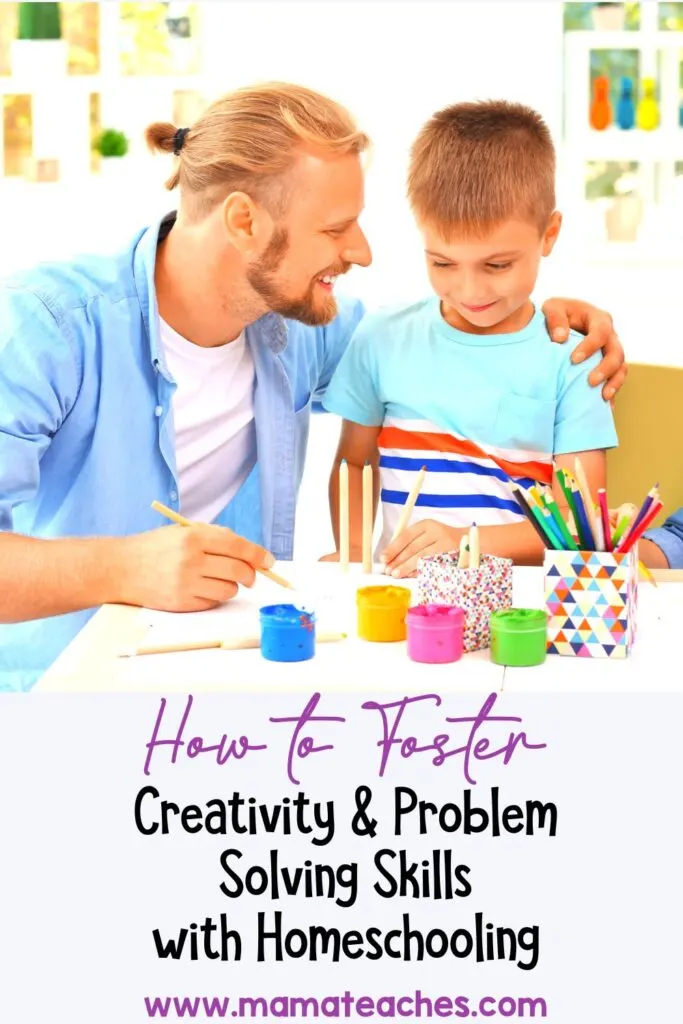
Questions a Mentor Can Ask to Develop Problem-Solving Skills
Here are some general questions to help your student develop problem-solving skills. You would ask these in the midst of a problem.
Let’s return to the earlier example. Your student needs to make the Globe Theatre (which is a twenty-sided polygon that effectively looks round) but only has cardboard boxes with right angles. What does she do?
You can ask her questions like these:
- Tell me about the problem.
- What do you know how to do?
- What do you still need to know? (And how can you find that information?)
- What tools and materials do you have on hand?
- What other tools or materials do you wish you had?
- If you don’t have what you need, can you create something similar to what you need?
You can adapt questions for any sort of problem.
Perhaps your student doesn’t know how to end a story (e.g., What is the problem in the story? Can you think of another story with a similar problem?).
Maybe she wants to create music to accompany her stop-motion animation (“Can we brainstorm some instruments or items we have on hand that make noise?”)
Ask questions to clarify thinking and help your student solve his own problem.
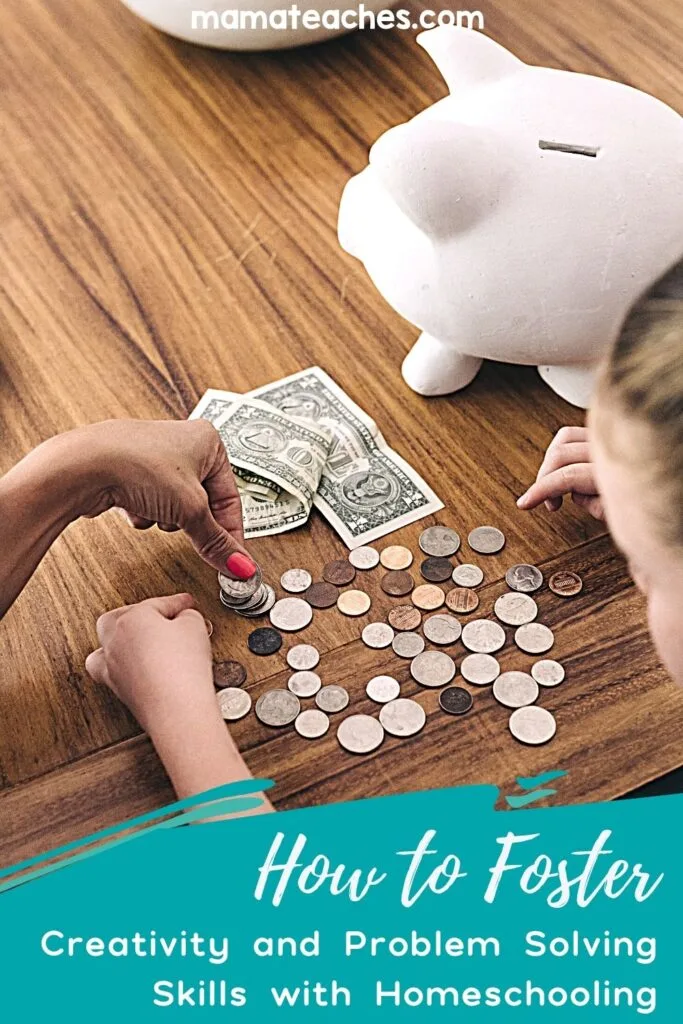
How Do You Foster Creativity?
In many ways, creativity and problem-solving go hand in hand. You must be creative to solve certain problems that do not have an obvious solution.
How do you provide your student with opportunities to be creative? You must let them make decisions!
Give them an open-ended assignment. For example, “Create a self-portrait without using crayons, markers, pencils, or paints.”
You can help your child walk through the brainstorming process. (What types of materials create color? What art materials remain for you to work with?)
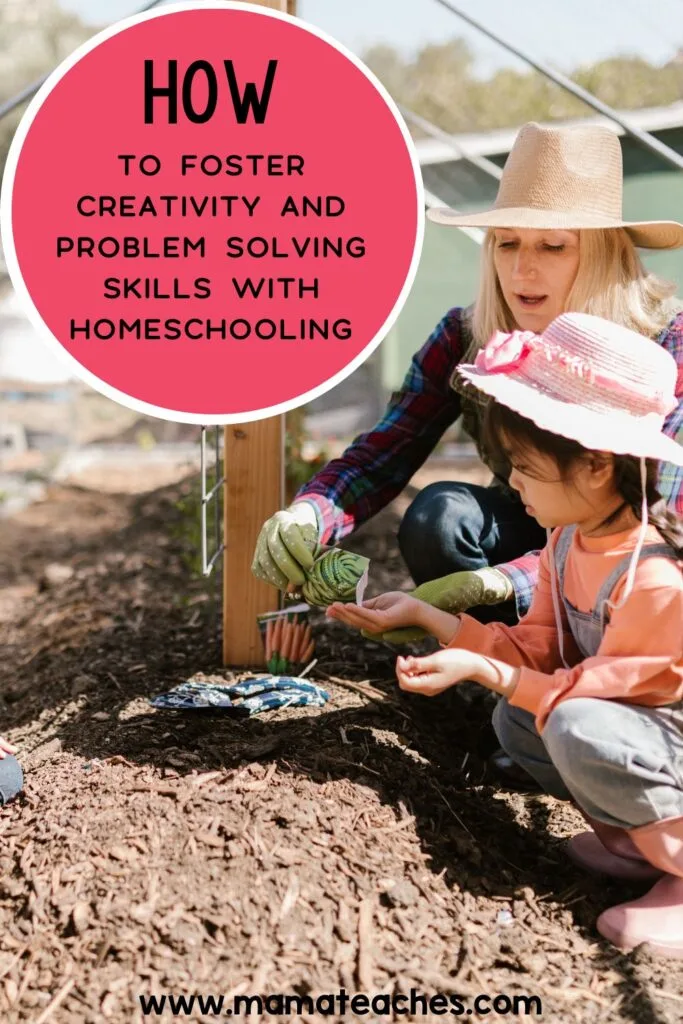
Destigmatize Failure
When your student thinks out of the box and attempts to solve problems, failure will happen.
This isn’t a bad thing!
Let failure be a friend. It teaches you about what works and what doesn’t.
It leads you to knowledge. “Why didn’t this work? Are there any adjustments I could make to get this to work?”
Failure also proves that you can take risks and make decisions; these are qualities to celebrate!
Artists, scientists, mathematicians, writers, musicians…all these people fail again and again in the process of making something good, beautiful, or true.
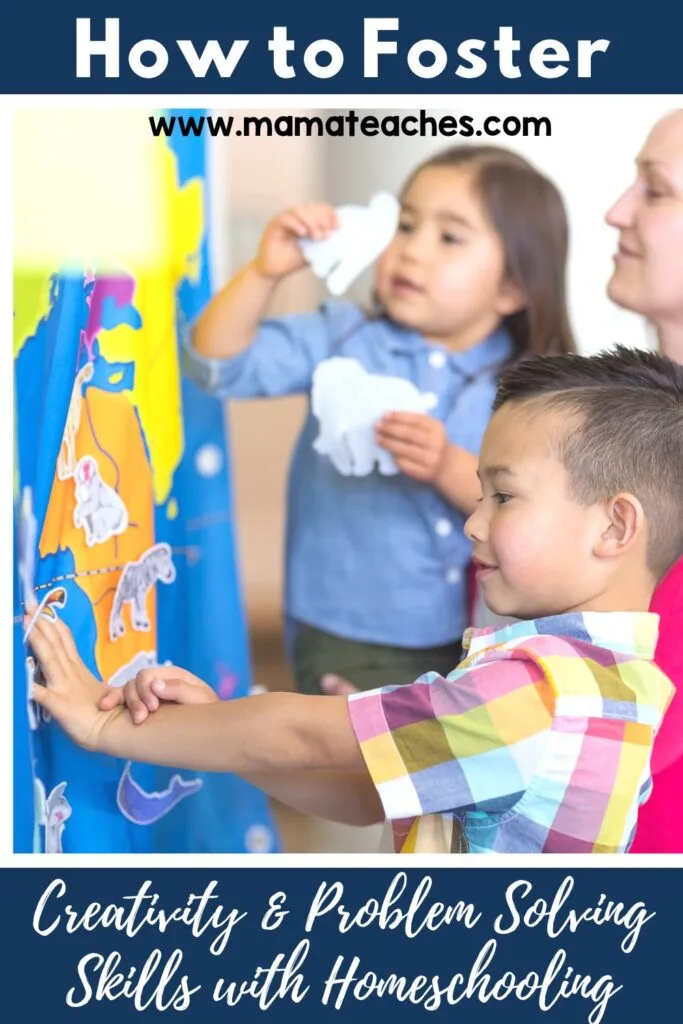
Interest-Led Learning Activities That Foster Creativity and Problem-Solving Skills
You don’t need to think too hard about how to provide opportunities for creativity and problem-solving. Simply let your child’s interests be your guide!
Your child has interests and passions that consume his free time. Why not tie those into homeschooling?
When your student is interested in the subject matter, she is much more likely to make decisions, go the extra mile, and get creative.
Interest-led learning can work for students from toddlerhood to high school.
Is your preschooler fascinated by boats? Give him a pile of empty water bottles, masking tape, and popsicle sticks. Then let him create boats for the bathtub.
Is your middle schooler into snakes? Task him with creating a snake habitat for a local snake. He’ll need to research diet, habitat, and more!
If you have a music-loving high school student, give him the challenge of composing his own electronic music with free music software like Audiotool.

Fostering Creativity and Problem-Solving Skills
As a homeschool parent, rarely do you hear anyone telling you to do less.
This is that moment.
Step back into the mentor role and give your child free rein to develop her creativity and problem-solving skills with project-based and interest-led learning.
